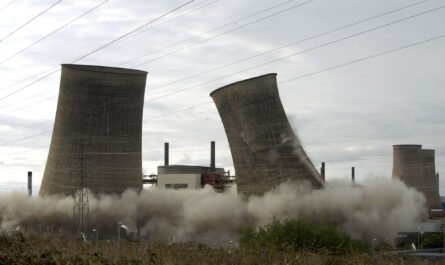
What are Decarbonization Services?
Decarbonization services aim to help reduce carbon emissions and transition businesses and economies away from fossil fuels towards cleaner, renewable sources of energy. As concerns about climate change rise, more companies are looking to lower their carbon footprint and many governments have legislated net-zero carbon emissions targets by 2050. This has led to the emergence of a new industry focused on decarbonization services.
Types of Decarbonization Services
There are a variety of different services that fall under the umbrella of decarbonization. Some of the major types include:
Carbon Footprint Measurement and Tracking
One of the first steps towards lowering emissions is understanding a business or organization’s current carbon footprint. Decarbonization services help measure Scope 1, 2 and 3 emissions through tools like carbon accounting and calculate metrics like carbon intensity. This baseline measurement allows progress to be tracked over time.
Renewable Energy Transition Planning
Transitioning away from fossil fuels towards renewable energy sources requires strategic planning. Services help develop roadmaps to renewable targets through strategies like onsite solar and wind installations, power purchase agreements and establishing microgrids. Technical assessments identify the most suitable renewable technologies.
Energy Efficiency and Conservation Projects
Lowering energy consumption through efficiency and conservation projects is a core part of decarbonization. Services audit buildings, processes and equipment to spot areas where energy use can be reduced through retrofits, behavioral changes and upgrades to energy-efficient alternatives.
Green Building Certification
For real estate and construction clients, certification programs like LEED, Living Building Challenge and BREEAM provide frameworks for making sites, structures and fit-outs more sustainable through features like on-site renewables, smart design and materials selection. Services help navigate the certification process.
Carbon Offsets and Removals
For some hard-to-abate sectors, offsetting and removals provide ways to balance out any remaining emissions. Services help clients invest in verified offsets, develop natural climate solutions or deploy direct air capture and storage technologies.
Strategic Advising and Policy Engagement
Bespoke advisory services provide strategic guidance to boards and C-suites on clean technologies, climate-related risks and opportunities. Services also represent clients in climate policy development and regulatory initiatives.
The Role of Decarbonization Services
As the low-carbon transition accelerates, decarbonization services are playing an important role in helping various organizations and sectors achieve net-zero emissions goals and strengthen climate resilience. Some of the key ways they contribute include:
Facilitating Data-Driven Decision Making
By accurately measuring and tracking carbon footprints over time, services provide critical performance data to inform priority areas, benchmark progress and guide investment decisions towards the most impactful abatement activities.
Enabling Clean Technology Adoption
Through technical assessments, feasibility studies and project management support, services unlock knowledge sharing that helps scale up adoption of renewables, efficiency and other advanced low-carbon solutions. This drives innovation.
Managing Transition Risks and Opportunities
Strategic advising equips clients with the tools and frameworks to understand physical, regulatory and market transitions, capture new business opportunities in cleantech sectors, and strengthen resilience against risks like rising carbon prices.
Facilitating Cross-Sector Collaboration
Multi-stakeholder initiatives convened by services catalyze new partnerships and joint projects across companies, governments and communities to higher collective impact through frameworks like industrial symbiosis.
Influencing Sustainable Policy Outcomes
Representation in climate policy arenas helps shape balanced regulation and investable projects that benefit both businesses and the environment through an just transition towards shared decarbonization targets.
The Outlook for Decarbonization Services
As nations strive to achieve mid-century net-zero targets agreed under the Paris Agreement, the decarbonization services industry is projected to experience rapid growth this decade. By 2030, spending on services supporting the low-carbon transition worldwide is forecast to reach over $2 trillion, creating many new green jobs. Nations are also developing skills training programs for decarbonization-related occupations. This signals decarbonization services have a bright long-term outlook as global efforts to tackle climate change and transition to clean growth accelerate. With policy momentum and rising citizen climate action worldwide, demand for services guiding decarbonization commitments and strategies is set to continue climbing in the coming years.
*Note:
- Source: Coherent Market Insights, Public sources, Desk research
- We have leveraged AI tools to mine information and compile it



